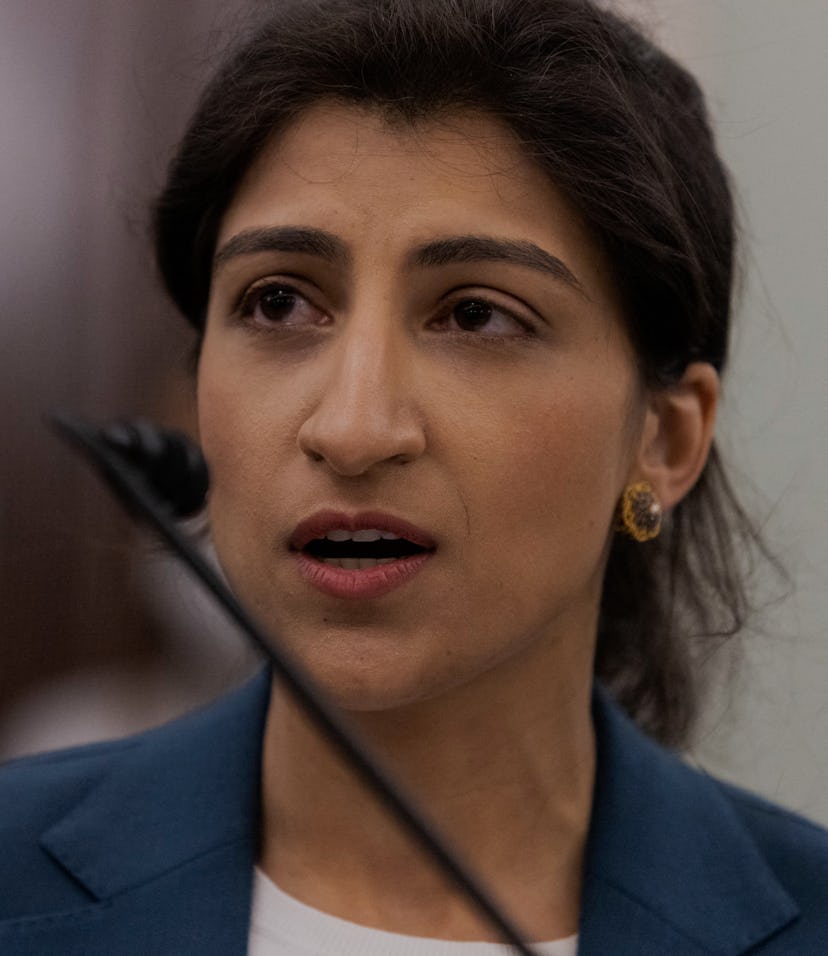Politics
Biden names anti-tech critic as head of the FTC
The president tapped Lina Khan to be the chairwoman of the agency that investigates corporate abuses.

President Biden has named Lina Khan, a longtime critic of Silicon Valley, as chairwoman of the Federal Trade Commission. The agency is tasked with investigating corporate abuses, including times when companies use their large size to outgun smaller competitors. The FTC also takes punitive action in response to data-privacy lapses and deceptive marketing practices.
Biden tapped Khan for the head role the same day the Senate confirmed her as a commissioner, in a 69-28 vote. “I look forward to working with my colleagues to protect the public from corporate abuse,” Khan said in a statement. At age 32, she’s the youngest person to head up the FTC.
Consolidated power — At her April confirmation hearing, Khan told the Senate that she was worried about how tech companies use their power to enter and dominate new markets.
“One [concern] that comes up across the board is that the ability to dominate one market gives companies, in some instances, the ability to expand into adjacent markets,” she said. Khan could be referring to the ways in which a company like Amazon is able to launch a streaming video service, Prime Video, in direct competition with Netflix, using its cash hoard and large userbase to get a running start. Or, say, how Apple launched Apple Music and promoted the service to its existing install base of iPhone users.
Changing tides — Khan said in her confirmation hearing that she believes regulators need to apply more scrutiny to company mergers. Under the Obama administration, the FTC and Department of Justice were friendly towards Big Tech, rubber-stamping major acquisitions like Facebook’s purchases of Instagram and WhatsApp. But today, sentiment has changed and many legislators feel approving those deals was a mistake, as they gave a handful of tech companies an unfair advantage over competition and too much influence in society.
Critics argue that the free market is no longer operating correctly because the scale of companies like Facebook and Google means the playing field is far from level. Historically, regulators have evaluated anti-competitive behavior based on consumer welfare, or whether or not consumers are charged higher prices as a result of one company’s market control. But because many online services are free, it’s been hard to assess them for antitrust violations. New measurements need to be considered, such as how users on Apple’s iOS platform are unable to download and use a cloud gaming service because of its tight control of the operating system.
Biden has been very critical of the tech industry and in March gave a White House advisory position to Tim Wu, a prominent law professor who has criticized the power of major tech companies.